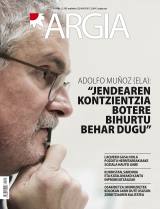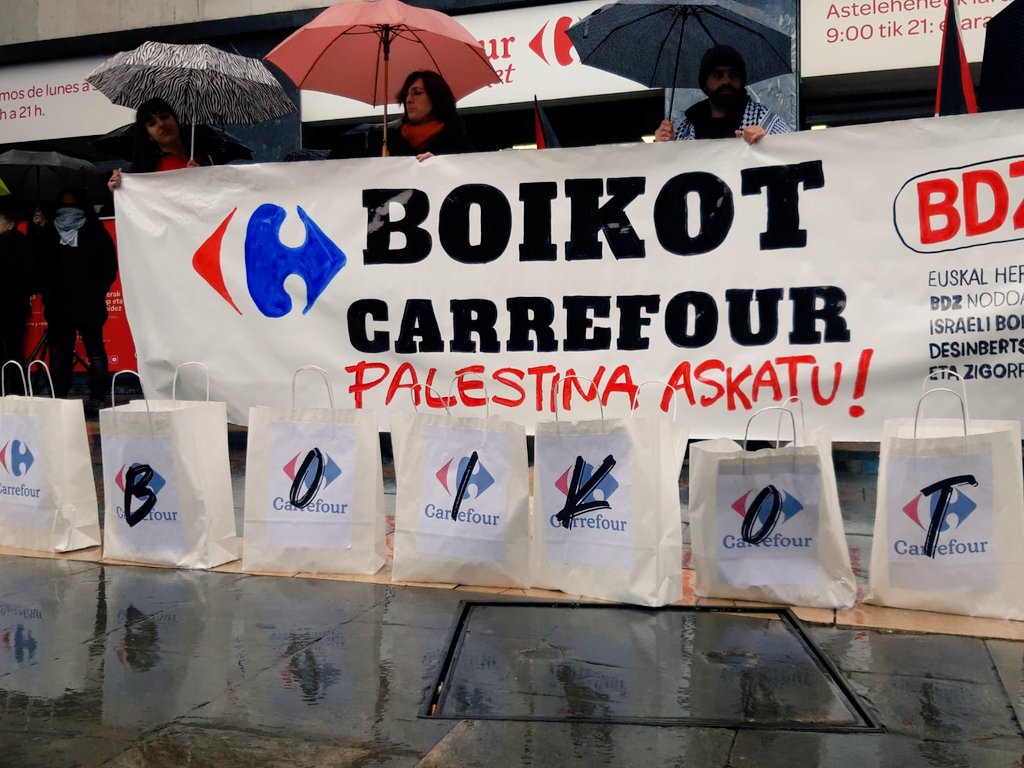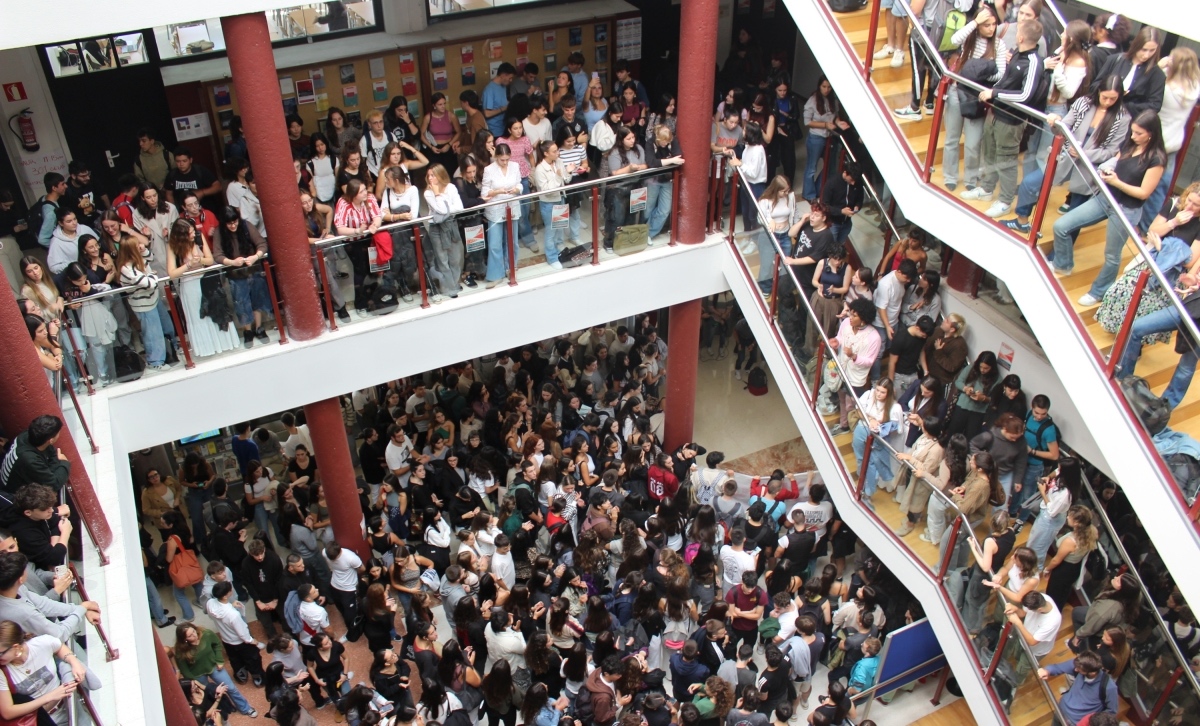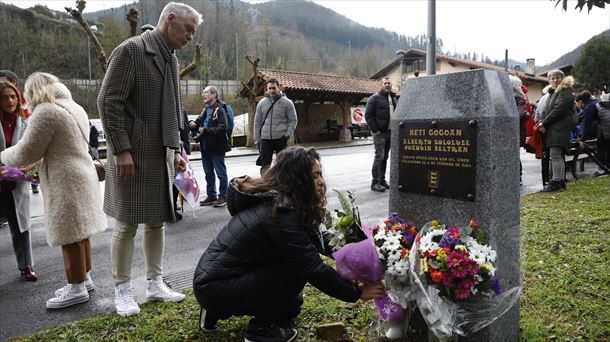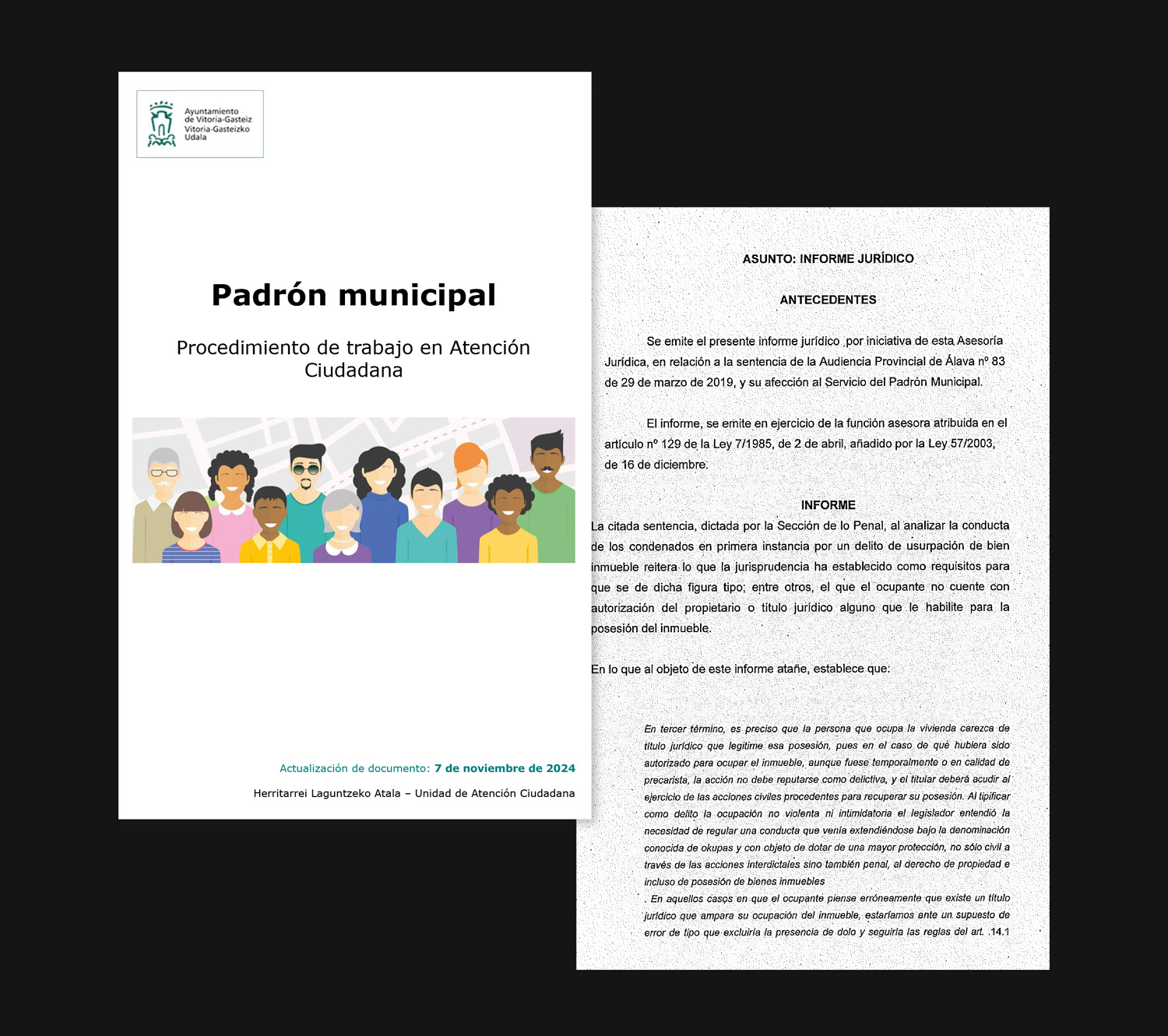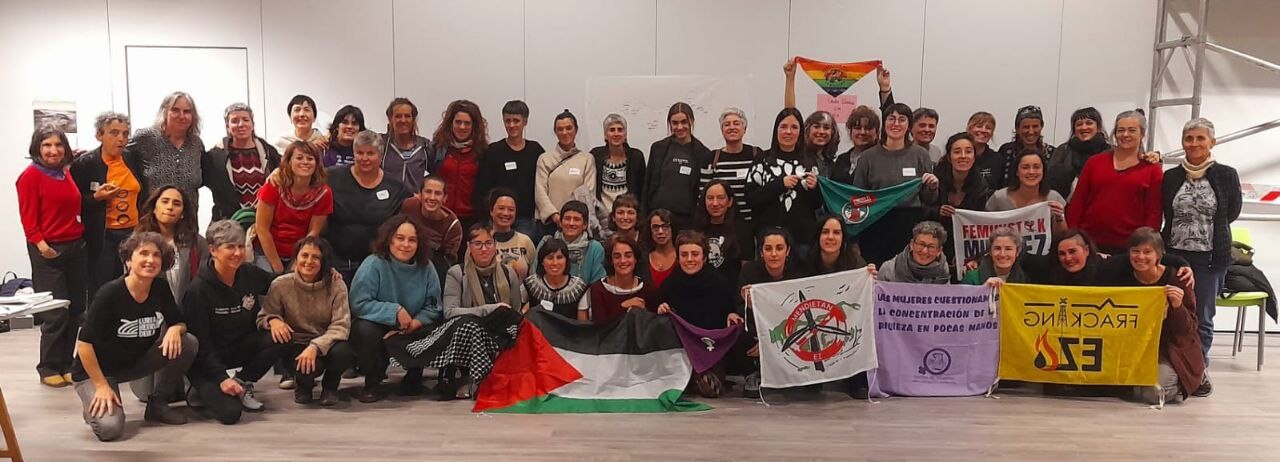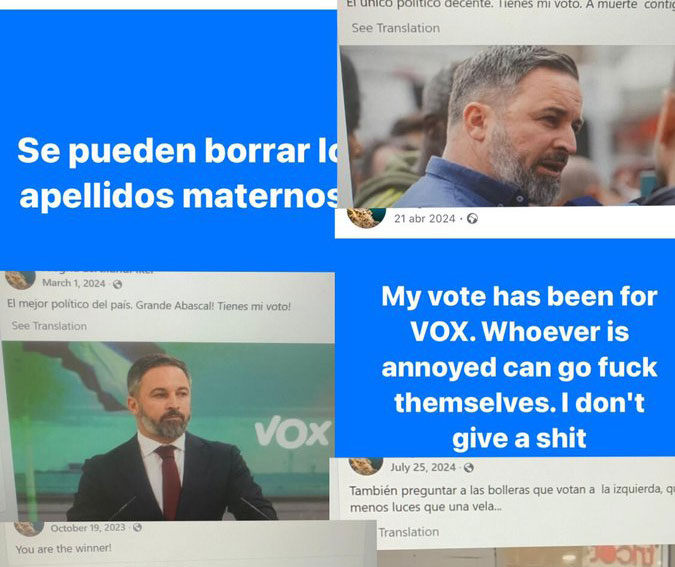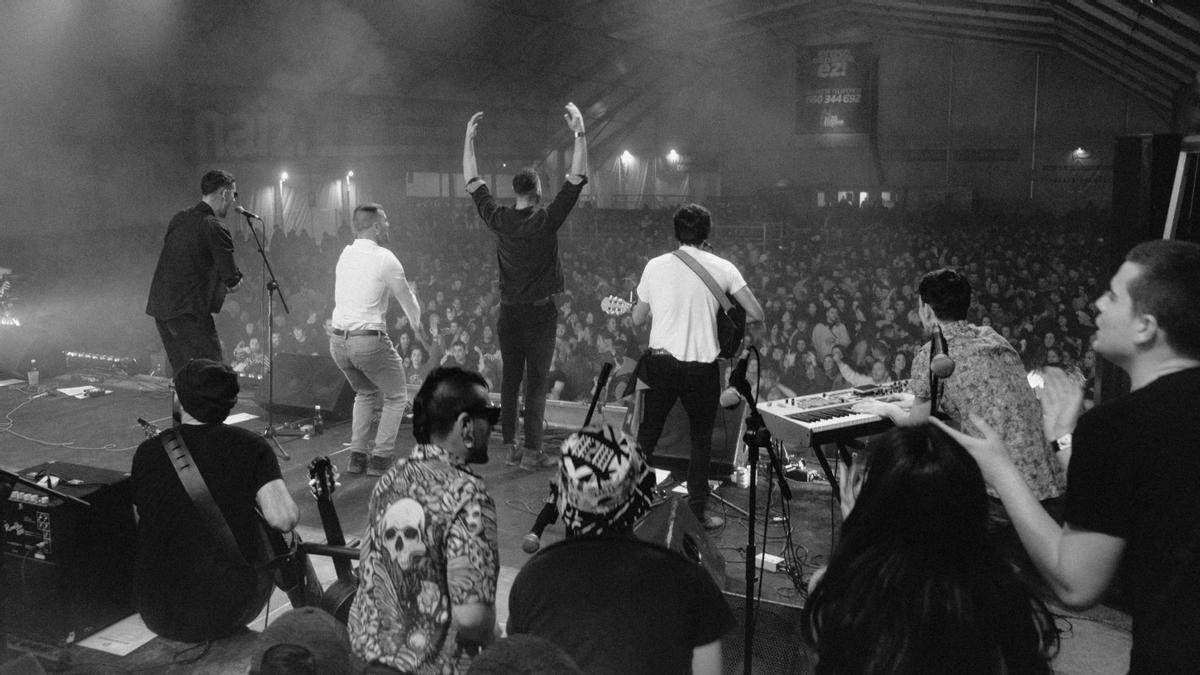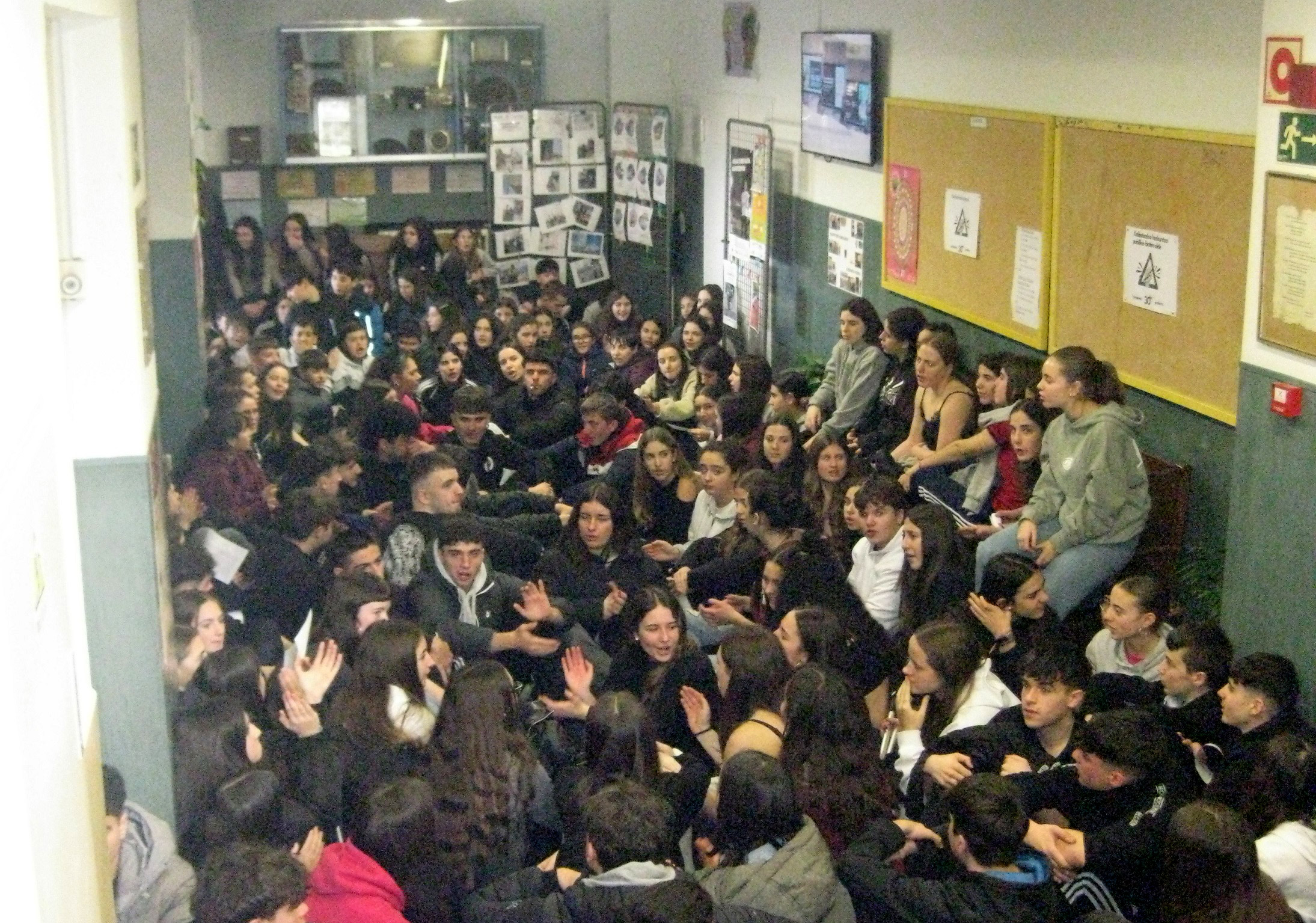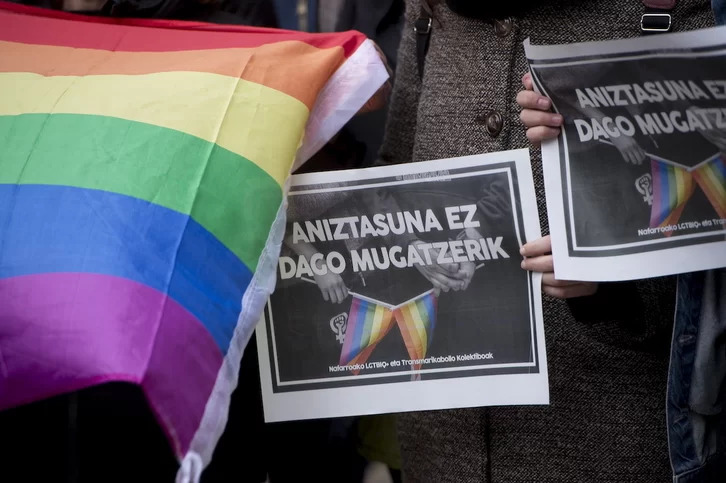"Poor creatures, we're proud!"
- We saw it on the TV show, talking about its baker. Created in Zugarramurdi and resident in Orozko (Bizkaia). A little girl who's documented us Jon Abril. Undoubtedly, the inner essence of bread needs a history to soften the baker.

We saw you in the ETB2 Herri people program. Will you tell me what Zugarramurdi's girlfriend does in this Biscay Orozko?
I was a little girl ...
Where, little?
In San Juan de Luz, in the house of the Epalza. They certainly came from Orozko, where they already had their house. They arrived from San Pedro until August 15. From here we went to Lekeitio, until October, and then to Donibane. We came to Orozko, as we said, on St. Peter's Eve. The girls used to have one afternoon of every fifteen days off every Sunday. Housewives were not at home, there were children and an elegant cook named Leandra. That said to us: “I’ll be with the kids, don’t come late. Go!” We were in the Jauregi neighborhood in Orozko, and we went to Murueta, six kilometers away, and there I met Pablo Azkoaga, and so I got to Orozko.
The Epalza are known people in the Basque Country.
Yes, it is. Mrs. Maria was Navarre, I think she excelled from Pamplona, but my master, Don Domingo, was Biscayan, from Lekeitio. They are the family of Adam of Yarza. According to my husband Paul, it was Adam of Yarza who brought the pine to Bizkaia around 1870.
You were young, working as a child.
I was nineteen years old, but the first time I went to France at fifteen. Until then he had lived in Zugarramurdi. I'm Telletxe's daughter. Our house is called Telletxea and there it is still. We were for a moment thirteen people: father, mother, eight children, grandparents and nephew. It's a very large house. There were chickens, there were four cows, there were sheep… and there was also a donkey. He was the sixth in the house, five boys before me.
Did you happen to work in the farmhouse?
Baiii! But I knew very well that I had to go to work. There were civil guards in Zugarramurdi and he was walking with his children. They didn't live so badly there... Do you understand what I mean?
That they did the ways to live well, managing something here and there…
You said it, not me! It was another way. They had plexiglas, transparent gabardines. As they are now parasols, then fashion was gabardine and the sons of the civil guards had it. And I also wanted -- I would be seven to eight years old, no more, and my father said to me: “Look, Julia, if you live here you will have normal clothes, you will not lack things to eat or eat, you will work and live well, but if you want plexiglas things, you will go, and you will earn money, and then you will have other things that you will not have here.” When I was eight years old, I knew that would be the case. School and other things didn't interest me. I wanted the girl.
Who were you for, my daughter? Where?
I'll tell you. My mother had a second creature, a nun, daughters of the Cross in France, and that's why I went to Salies de Bearn to learn and work in French. I was there for a year and I learned French very well.
How did he get home from the Epalza?
This is another story. Then I met a Jesuit, and he told me why I didn't go to San Sebastian to study nursing. I knew a family and this one and that, and "What not?" I said. But the pattern died immediately. The family was an Etxeberria, a psychiatrist. I was there for two years, without a nurse or anything, working. From there we went to Lekeitio. There were four women at home: three sisters, one sick, and one old woman. The old amatxi died when we were there. It was his toy. I was going to sew, and there I met a lady who was called Just, and I told her I wasn't happy and I wanted to leave. And he told me that he would talk to the Epalza, about the girl that that woman had been with. So I went to see Epalza. I was there for a year.
1 year.
Yes. I also wanted to learn English, and I had the way to learn English, but not in England, but in the Antilles.
Have you been in the Antilles, small?
Yes. Juan Ibarnegarai? You can hear it. I spent a year with her daughter.
Do I have to tell you everything?
…
I have asked you a question: Do you want me to tell you the whole story?
I want to know the history of the antilles, yes.
I spent a year in the Small Antilles. I went to the nineteen years. Juan Ibarnegarai married not too young. She had four daughters. I went to the West Indies with my eldest daughter. He had one son and waited for another. A Russia knew her and I know what that is, you know what those stories are like, and she said to me: “You, Julia, do you want to go?” and I do. I was with them in Donibane Garazi, before I got to the Antilles. There was a large house with four towers, which looked like a castle. At the front door of the house there was an inscription: “Before, like that. Now ... Then, how?”
It was in Donibane Garazi, before reaching the Antilles.
Yes. I was pretty good with the owner of San Juan de Pie de Puerto and with everyone. But we took the boat in Vigo and went to the Antilles. Fifteen days, good. And also in the Antilles, good me. Antilla is a very different place, but there the weather is hot, and I love hot weather, I must tell the truth. And I really liked it.
You love warm weather.
Yes, and it was OK. It was an island, 35,000 people, and we were about 300 white people. When I got there they all knew who I was, they all talked to me, they greeted me, they were very kind to me… There was a retired military man, I knew the French, and when I saw myself, I always talked to me… OK!
I cannot avoid that. From the corner of Zugarramurdi to the shore of the Antilles.
I've grown up in Euskal Herria, and you know how we live most of the time here: faith. When I was a kid, I behaved like my parents did. I didn't take liberty, I didn't need it. I've run through a lot of dangers and a lot of funnels, but I've never had anything to fear: someone takes care of me on the other side. And I'm older and safer.
Speaking, if you want: Is the life of a child tough?
Yeah, when you're alone. The dog in the house is more important than you, always in my time. Another thing: I also have that, good or bad, but the pattern, and I have it in my place. I've worked in a house and I've served as well as I could, but when I've gone, goodbye!, it's not my place. I don't mean I feel less, no. Everyone in their place: those of us who have been born rich, rich, poor, have our pride. If in the house where you are a child there are children, there is something else: the children give it to you and you give it to you, take it and look like it, there you are not alone. I arrived in Paris.
In Paris? Were you in the Lesser Antilles, then in Paris?
Yes, of course, I came back from The Antilles. There were stories and I came. The patron told me: “I know I don’t feel good about you…” I said: “Look, ma’am, it’s not your fault, it’s not mine, but we can’t be together.” He was him and I was me. If someone speaks to me, I will answer him. In the Antilles people wanted me and helped me come. There were shops, bakery, drugstore, travel agency… And I got into the agency and they helped me.
You came out of there.
Yes. I took the boat in Barbados, which was called Montserrat. My patron knew that I was there and he said nothing that day. I packed the suitcase, the story within two minutes, and I was ready. That day the patron went to the beach with the children. When he came back, he said: “You have to do this and that, so many things, and then get ready, what do you have to catch the plane in the three.” And I said, “First I will prepare my things and then, if I have time, I will do other things.” And the Chief: “Stupid!” Ha, ha, ha… I didn’t listen to them. The children are tied to me, with me. They knew me. That's how I left. At the airport, the police came asking me if I had any complaints and what a cry had been heard at the door. It was scarce, but careful. In the next house I was in Paris. Fenwick forklifts? Do you hear it?
Fenwick, yes, they're also well-known in the world.
I was with them, girl. The patron had died, the patron lived like him and had two young children. I had been with them for seven days, but I wasn't bad, much less, pretty good. The little one had left three years later, asking who the owner of the house was. He was a little guy, but he was already a master. “The boss is you and I am a little girl, but as you are a little one, you have to do whatever I say.” Then there was a tough fashion to give the children liver and spinach. Children: “I don’t want the spinach!” “If you’re older, you should eat a little less, but you have to eat!” I lived well with them. Finally I said to the patron: “Hey, why don’t you bring the kids with me to Zugarramurdi?” Yes, I spent five months in Zugarramurdi. I left them the day before I got married.
Did you get married the day before?
Yes. Leaving the children was one thing for me… And still… People say: “You love the children you have given birth.” But it's not like that: you like kids if you raise them. It is not true that childbirth, not childbirth. I still love those kids. They're 54 to 55 years old. I still love those kids, really.
When did you leave work as a child and get married in Orozko?
One thousand nine hundred and three to twenty-four. I left those kids in San Juan de Luz, got married and the next day I came to Orozko. When I got married, you don't think: love, this and that, you don't think anything anymore. And also, you think your man is a god. After four years, I realized it was like everybody else. So, you have to admit what things are like, nothing else.
And he once started making bread.
I did a good horticulturist role, my house was full of nostalgia and looked good. She was a woman, with illusion. I don't understand the wives of now, the feminists and others. The woman has so much more than a man. You're a woman and a mother. The man makes children, but he doesn't breastfeed. Do you know Ramiro Pinilla? I really like that man. I once heard him say on television: “The woman doesn’t have to prove anything, it’s her.” I live with my man, I serve him many tastes, but he also gave me his thing. What you bring you do with enthusiasm and what you receive, you appreciate it.
Bread ...
Here I learned how to make bread, in Orozko. But in Zugarramurdi, when I was a kid, who made the biggest films? Always Julia. I lived in Telletxea, but my grandmother lived in another hamlet, in Sartzar, and there she went. There, her father’s sister, aunt, made the gas, made the bread, the gardeners… She was a woman, she. I went a lot to my grandmother's house, and I found myself quite comfortable in her house. And when I got married, I loved home bread. The children had grown up, but it wasn't necessary. I started making bread with a neighbor, first from home, but we went to Gernika in 1978.
Sale of homemade bread. On TV you've already told the story of the story.
I have seen the programme once and have looked no further!
“Baserritarra eta okina” the television said about you, but there is something in the life of Julia Barberena Irigoien.
Do you believe? That may be the case. I don't realize it, but there's a lot going on in my head. I don't realize it!
“Gaztea nintzen, baina nik beti zaharra nahi, lehengo gauzak behar izaten nituen. Eta baserria, berdin: nik baserria maite dut, etxe zaharrak maite ditut, ez berriak. Ez dakit zertaz, baina beti horretan izana naiz”.
“Sartzarrean ehun urte aitzinatuak ginen. Amatxik alemanak ikusi ere ez zituen nahi. Patata mamorroa ez omen zen Bigarren Gerran alemanak etorri arte. Ordutik hona helduak omen dira. Amatxik hala erraten zuen: ‘Aleman zikin horiek!’.
Amatxi joaten zen patata hartzera, eta gero, harri baten gainean tta-tta-tta-tta!, denak hausten zituen. Ez zuen pozoirik botatzen. Etxe hartan aski ongi jaten zen, eta beti etxekoa. Erosi egiten ziren: kafea, arnoa, azukrea, olioa eta, noizean behin, lata bat sardina. Bertzenaz, dena etxekoa zen”.
“Gizon bat ezagutu nuen, eta segur nintzen honat behin ere ez nintzela etorriko bizitzera. Hemen gelditu naiz, Presatxu etxean”.
Neskato izan zen ezkondu artean. Donibane Lohizune eta Garazi, Antilla Txikiak eta Paris ibili zituen, inoren etxe eta haurrak zuzentzen. Tartean, Txomin Epaltzaren sendian, Jean Ibarnegarairenean eta Fenwick-en alargunarenean zerbitzatu zuen. Orozkon da 1964az gero, bertara ezkondurik. 1978an etxeko ogia saltzen hasi zen, eta telebistan ikusi dugu oraindik orain Herri People saioan, Zazpi baserri izeneko saioan. “Baserritarra eta okina” zioten Juliaren gainean ari, baina telebistan kontatua baino aunitzez gehiago da. “Zuri kontatzen ahal dizut, baina ez da publikatzekoa. Ez du merezi”. Gordean dira hau, hori eta hura…









